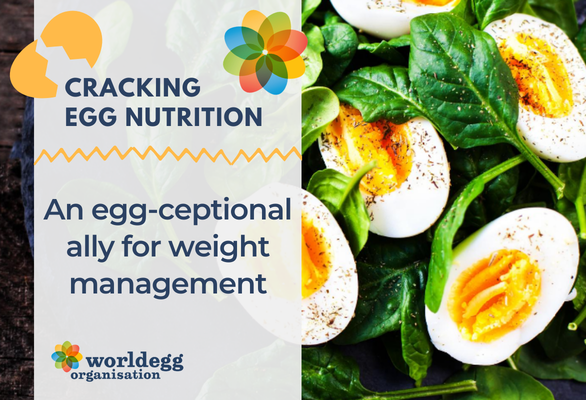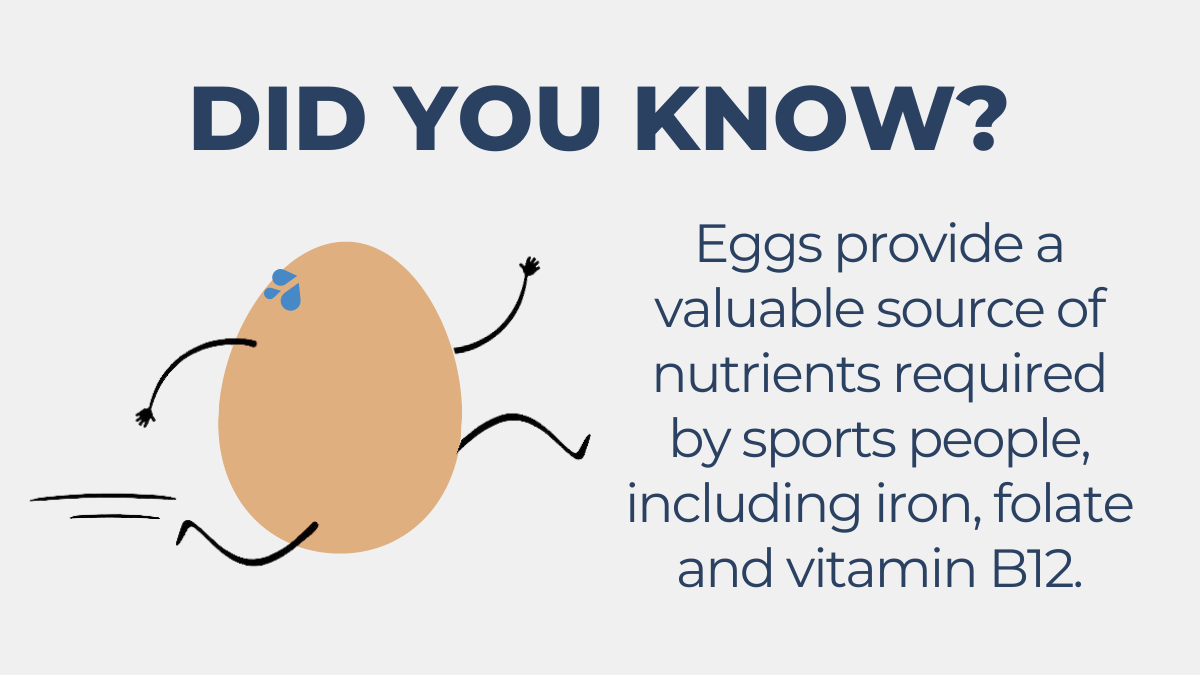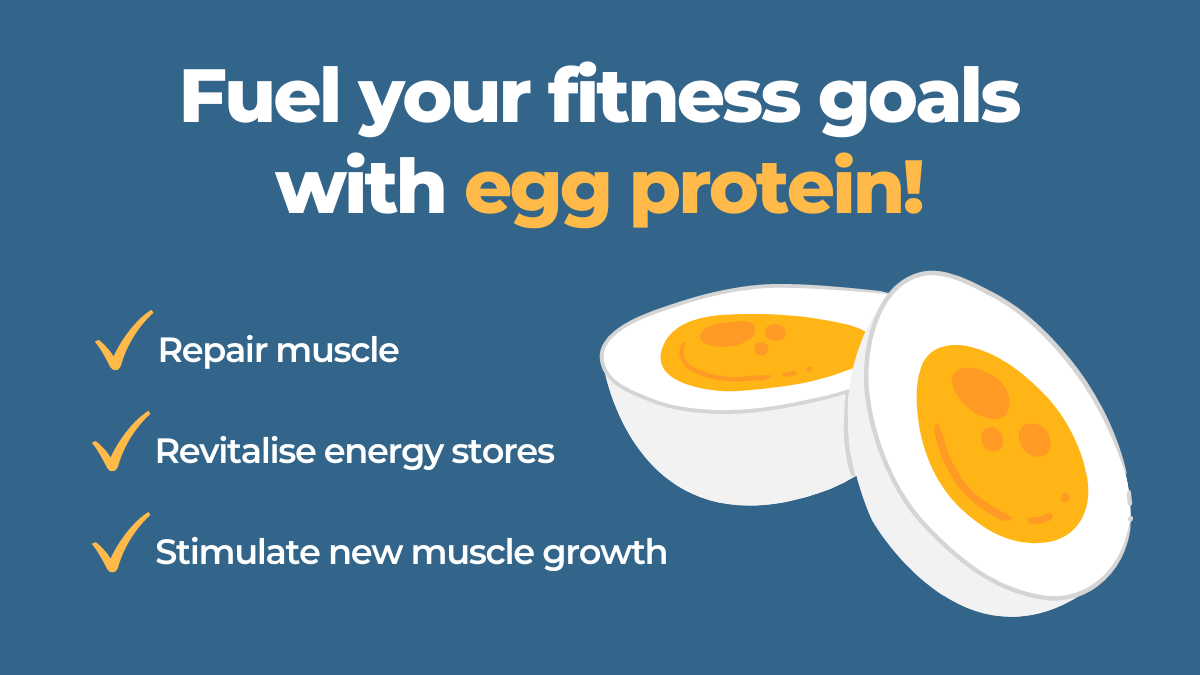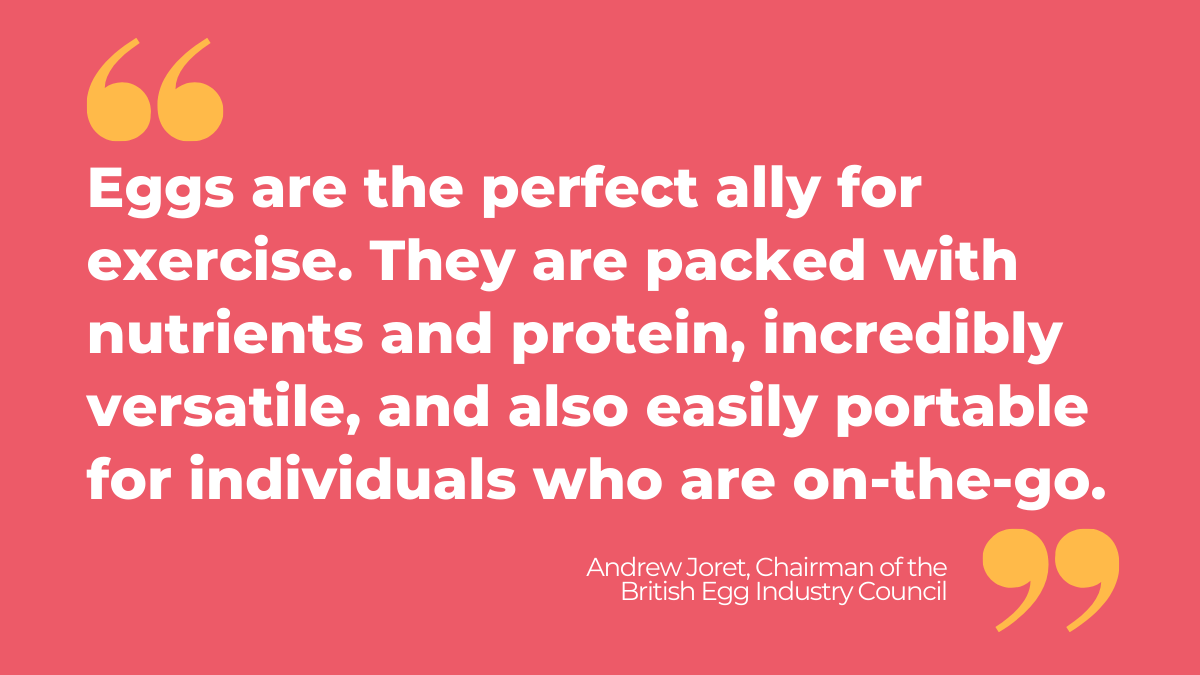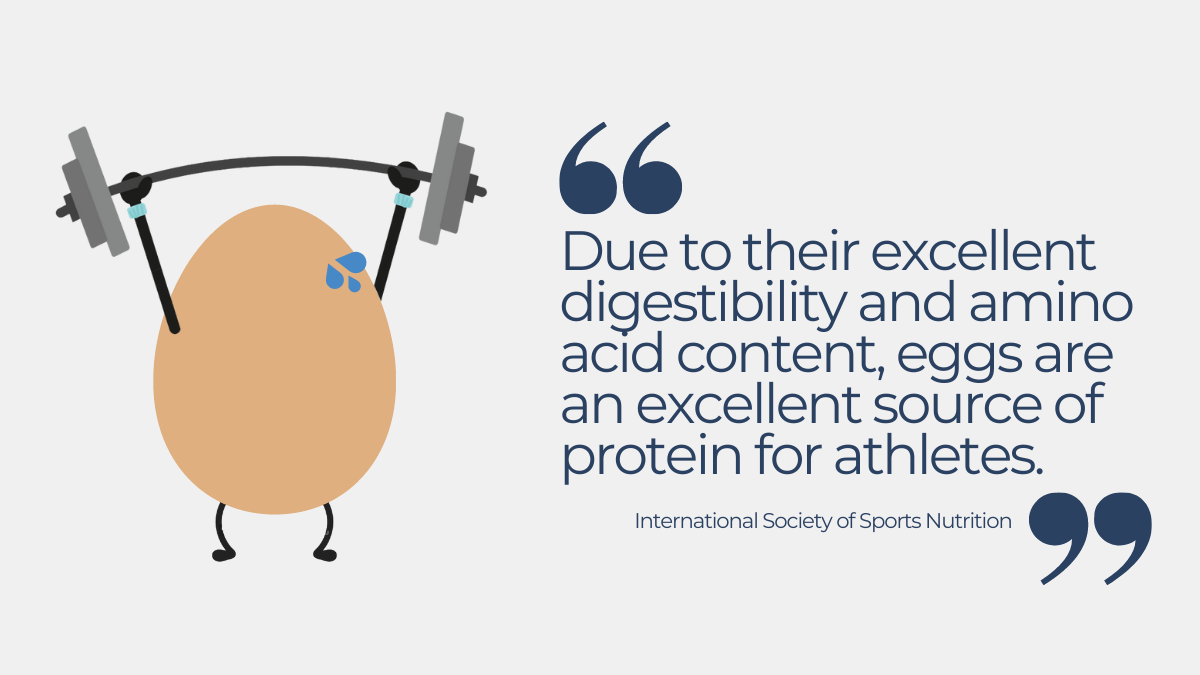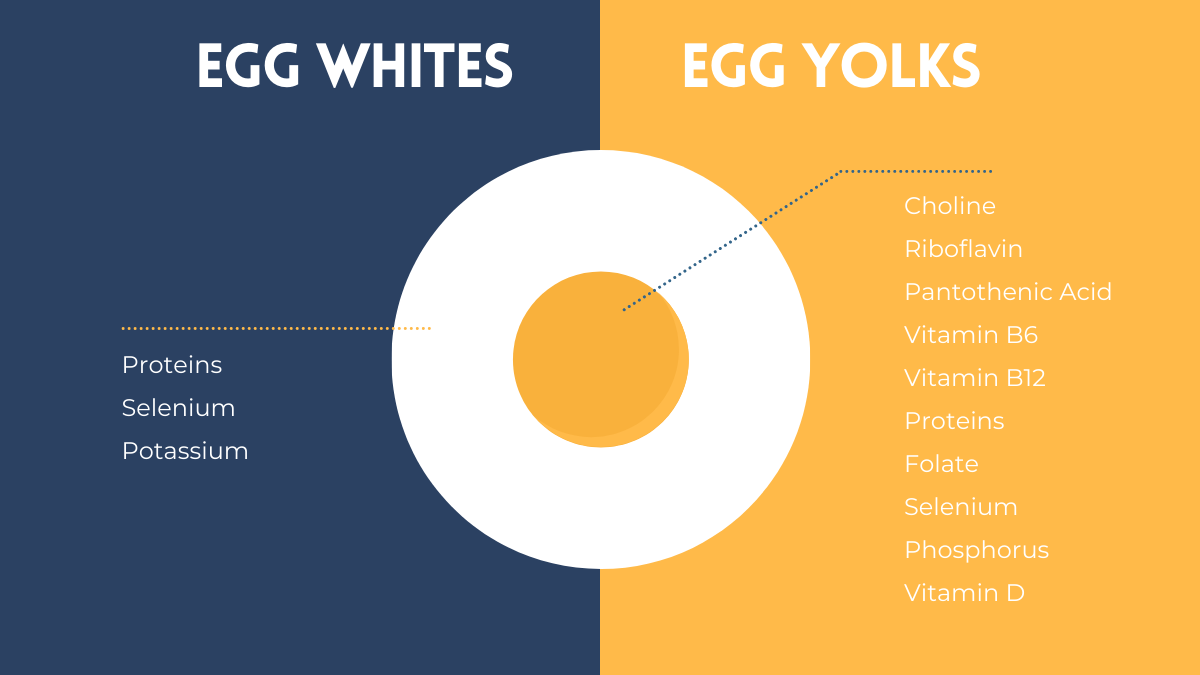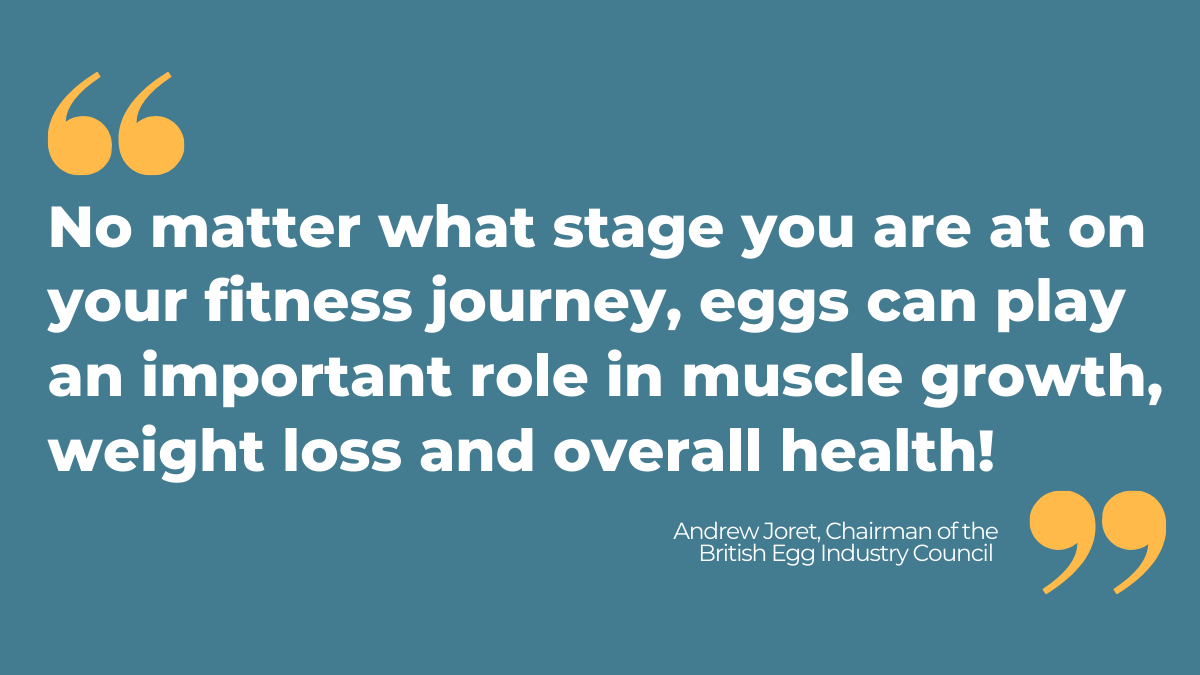Cracking Egg Nutrition: Egg-cellent fuel for your fitness goals
Whether it’s professional sports, personal fitness or leisurely activity, it is important for individuals of all ages to ensure they get the right nutrition before and after exercise. Adequate intake of vitamins, minerals and protein matters for muscle growth, endurance and overall health. Let’s explore why eggs are the perfect protein package to help fuel your fitness goals!
Why does diet matter?
Just like stretching, warming up and cooling down, getting the right nutrition is a crucial aspect of exercise and training. This is particularly true for what you eat AFTER a workout, where accessing key nutrients can help you speed up your recovery and build strength faster.
Protein is one of the most important nutrients needed in post-workout diets. Consuming high-quality protein after exercise will help you repair muscle, revitalise energy stores and stimulate new muscle growth, meaning you will see the rewards of your hard work sooner1–5.
While your muscles will ultimately repair themselves on their own, research suggests that eating adequate protein within two hours of training will help the body rebuild and grow muscle more efficiently and effectively6.
These increased levels of protein can be particularly effective for resistance training, such as weightlifting, with the International Society of Sports Nutrition recommending more than 3g of protein per kg of bodyweight7. Alternatively, for endurance-focused workouts, such as running and cycling, they advise 1.4-2.0g of protein per kg of bodyweight7.
Furthermore, for the best results, it is recommended that protein intakes of 20-40g per meal be evenly distributed throughout the day, at intervals of around 3-4 hours7, consumed alongside carbohydrate-rich foods and appropriate fluids8.
“With growing trends in personal fitness development and gym-based resistance training, there is an increasing demand for protein-rich nutrition that’s affordable and accessible,” explains Andrew Joret, Chairman of the British Egg Industry Council (BEIC) and member of the International Egg Nutrition Centre’s (IENC) Global Egg Nutrition Expert Group.
The power of egg protein
With 13 essential nutrients, 6g of protein, just 70 calories and 5g of fat, one large egg has a unique nutrition profile that is ideal for athletes of all ages9! “Eggs are the perfect ally for exercise,” says Mr Joret, “They are packed with nutrients and protein, incredibly versatile, and also easily portable for individuals who are on-the-go.”
It is not just that eggs are rich in protein, but that the protein they contain is the highest quality naturally available10.
The quality of protein mainly depends on the composition of different amino acids in the food, and their bioavailability to be digested and absorbed. For example, eggs contain all nine essential amino acids, making them a ‘complete protein’. Furthermore, the ratio and pattern in which these amino acids are found makes them the perfect match for the body’s needs.
The protein in eggs is also highly digestible – the body can absorb and use 95% of it! Scientists have even used eggs as a benchmark for evaluating the protein quality in other foods11. Read our article on protein quality to find out more.
The International Society of Sports Nutrition advise that athletes choose whole food sources of protein, like eggs, to stimulate muscle protein synthesis (MPS)12, a naturally occurring process in which protein is produced to repair muscle damage caused by intense exercise. They also argue that eggs can be easily incorporated into diets throughout the day as they “can be prepared with most meal choices, whether at breakfast, lunch or dinner12.”
Don’t forget the yolk
“When it comes to egg white vs egg yolk, people often think that discarding the yolk will be the healthier option due to misconceptions about cholesterol and unhealthy fats.” says Mr Joret, “The problem is, when you throw away the yolk, you throw away the majority of essential nutrients and around half the protein.”
The latest research confirms that eating eggs as part of a healthy diet does not have a significant effect on blood cholesterol, and therefore does not increase the risk of heart disease in most people.
Meanwhile, the protein in an egg is almost equally divided between the yolk and the white, so it’s important to include both in your post-workout diet. In fact, research shows whole eggs stimulate muscle growth and repair even more than just eating egg whites alone13.
We’ve cracked it!
The secret to sourcing high-quality protein to support your exercise goals is simple… the incredible egg! “The truth is, you don’t need the next leading supplement or shake to access the highest-quality protein available – you can find it in the all-natural humble egg!” Summarises Mr Joret.
“No matter what stage you are at on your fitness journey, eggs can play an important role in muscle growth, weight loss and overall health!”
References
2 VanDusseldorp TA, et al (2018)
4 Kreider RB, Campbell B (2009)
10 FAO
11 Institute of Medicine of the National Academies
Promote the power of the egg!
To help you promote the nutritional power of the egg, the IEC has developed a downloadable industry toolkit, including key messages, a range of sample social media posts, and matching graphics for Instagram, Twitter and Facebook.
Download the industry toolkit (Spanish)About Andrew Joret
 Andrew has been working in the egg industry for over 35 years. He is a member of the International Egg Nutrition Centre’s (IENC) Global Egg Nutrition Expert Group and Chairman of the British Egg Industry Council (BEIC), as well as Group Technical Director at Noble Foods, one of the world’s leading egg businesses. In his role as Chair of BEIC he represents the UK egg industry on all levels of the value chain from breeding to processing and marketing, under the British Lion Scheme.
Andrew has been working in the egg industry for over 35 years. He is a member of the International Egg Nutrition Centre’s (IENC) Global Egg Nutrition Expert Group and Chairman of the British Egg Industry Council (BEIC), as well as Group Technical Director at Noble Foods, one of the world’s leading egg businesses. In his role as Chair of BEIC he represents the UK egg industry on all levels of the value chain from breeding to processing and marketing, under the British Lion Scheme.
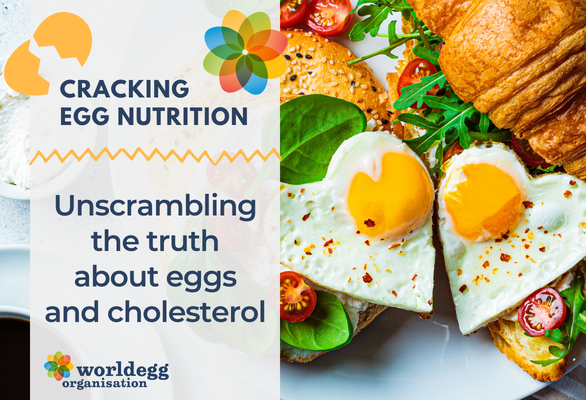
Unscrambling the truth about eggs and cholesterol
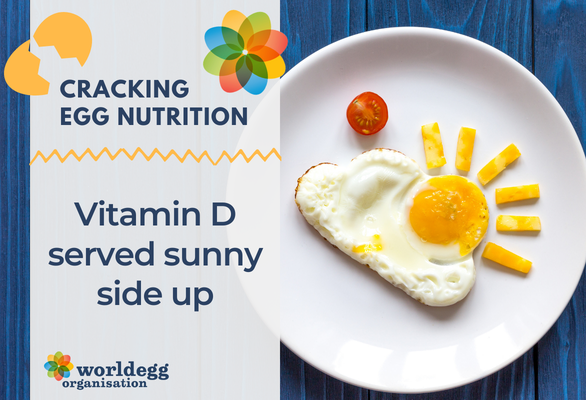
Vitamin D served sunny side up
